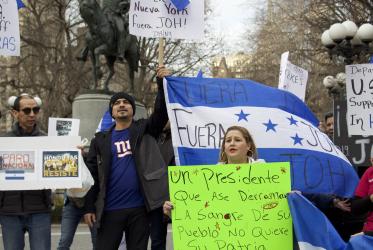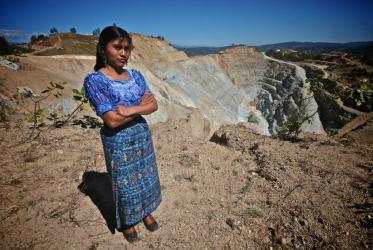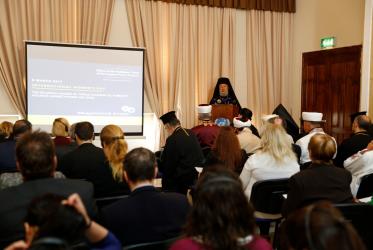Displaying 61 - 80 of 155
27 September 2018
Conference explores Christian approach to borders
05 October 2017
World Week of Peace highlights “culture of love and resilience”
27 September 2017
Rebecca Dali: My faith in God motivates me every second
24 August 2017
Gender-based violence concerns ‘all of humanity’
11 July 2017
G7 must address famine
22 May 2017
WCC, LWF host recipients of Right Livelihood Award
02 November 2016








